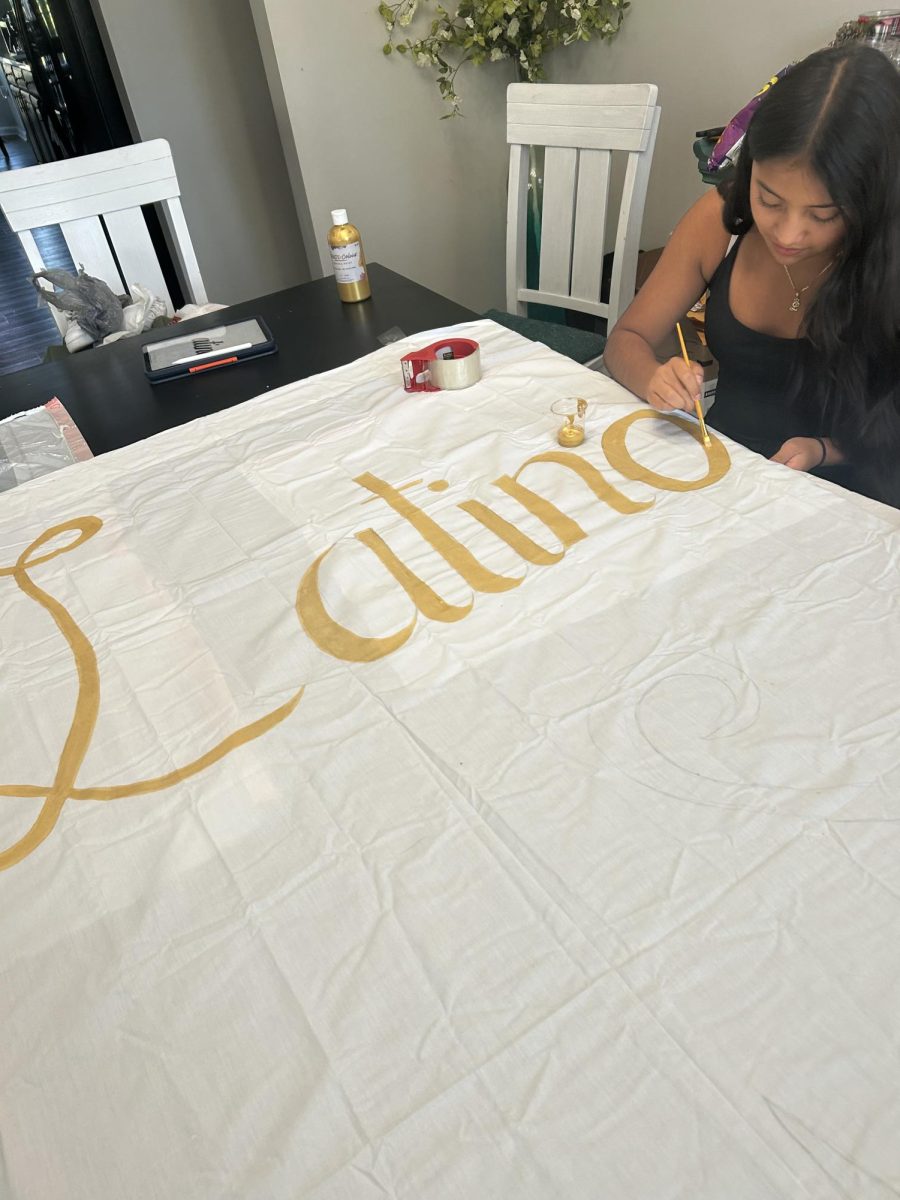Everything about the day seemed unremarkably normal. For senior Rose Sterrett, classes felt the same as they ever had, and the world seemed to spin at the same speed it always did. Those feelings changed, however, when her trembling hands wrapped around her golden key.
In today’s digitally connected world, people often look for ways to channel their feelings into something positive. People channel their emotions to accomplish many different things. For some, sports are a good way to get their emotions out. For others, music can do the trick. For Sterrett, it’s poetry, the very source of her prized Gold Key.
Every year, the Scholastic Art and Writing Awards gives a select few students the coveted Gold Key, a regional award given to the top creative minds around the nation. With only 7% of all total applicants winning the award, it is one of the most exclusive literary prizes a teenager can receive. Sterrett’s reception of this illustrious award came after years of hard work, dedication. Sterrett’s love of poetry first started during her sophomore year of high school, with a growing interest in both English as a subject and an influence from the works of various well-acclaimed poets.
“It was around the poetry unit that I really started to get into it. My English teacher, [Greg] Richards, really pushed the importance of poetry during it. Around that same time, I read “The Bell Jar” by Sylvia Plath, which had a lot of poems that resonated with me,” Sterret said.
English classes are just one of the ways that young people can get into poetry writing and analysis. Editor Sam Stevenson of Medium magazine says that both reading and writing can lead to enjoyment of the literature form.
“When it comes to writing, the only true way to teach it is to have people do it,” Stevenson said.
However, writing poems for an English course is very different from submitting writing to a national contest. Making the jump from occasional writing to competitive participation took Sterret out of her comfort zone.
“It was scary. Writing the poem was really fun, but presenting on stage was nerve wracking,” Sterrett said. “The experience was this weird blend of excitement and awkwardness, being surrounded by strangers all there for the same reason as you. That being said, I wouldn’t trade that moment for anything.”
According to Sterrett, two things that made this leap easier to deal with. One was her passion for writing, and the other was her assistance from English teacher Bill Kenley. As Sterretr’s writing process progressed, Kenley noticed many things that would eventually lead to the senior becoming such an accomplished writer.
“Rose was a great student,” Kenley said. “She brings a lot of curiosity and energy. She really likes to learn and evolve. She was a good writer when I met her, but it was her willingness to revise and be patient while working on things that really helped her excell to the next level.”
Sterrett is not just a poet, either. She’s also written several short stories — both for the Scholastic contest and on her own time — that deal with similar topics. Yet, her poetry stands out as being her strongest talent.
“Poetry taps into a part of my mind that other forms of writing can’t,” Sterrett said. “The complexity of it allows for ideas to be put in this beautiful, genuine light, even when it’s something really dark. I find so much beauty in both reading and writing poetry, it’s the closest thing to magic out there.”
While it might seem daunting to an outsider, Sterret says that becoming an award winning writer is possible with the right mindset. For other students interested in getting into poetry, She has a few suggestions that can make the process feel more manageable.
“The most important step is to read and write a lot of poetry. Nobody starts off as a pro, so just have fun with it and start creating,” Sterrett said. ”If you’re interested, get involved. Take AP courses, learn on your own, make things. The best way to start a passion is to do it.”










